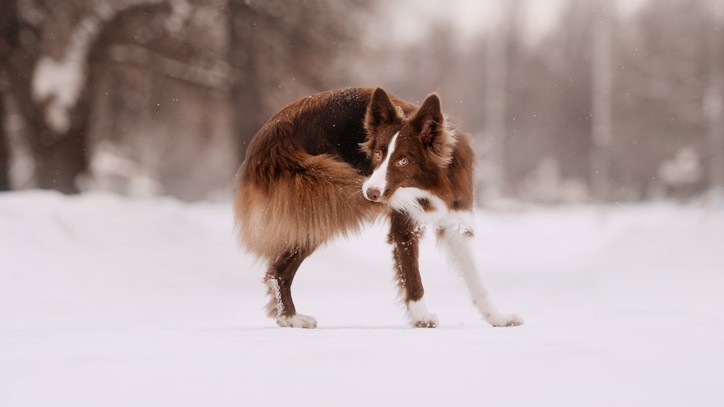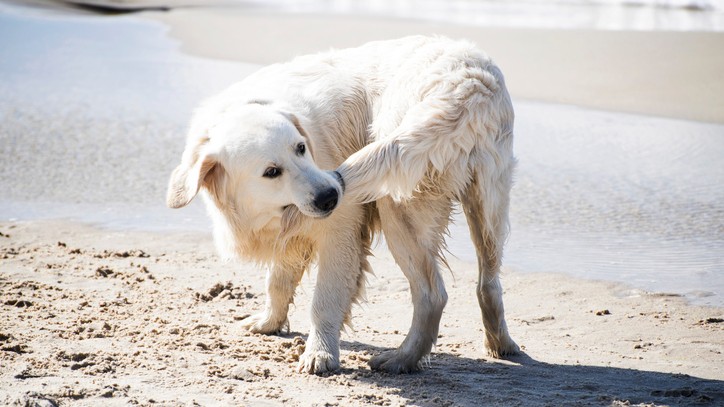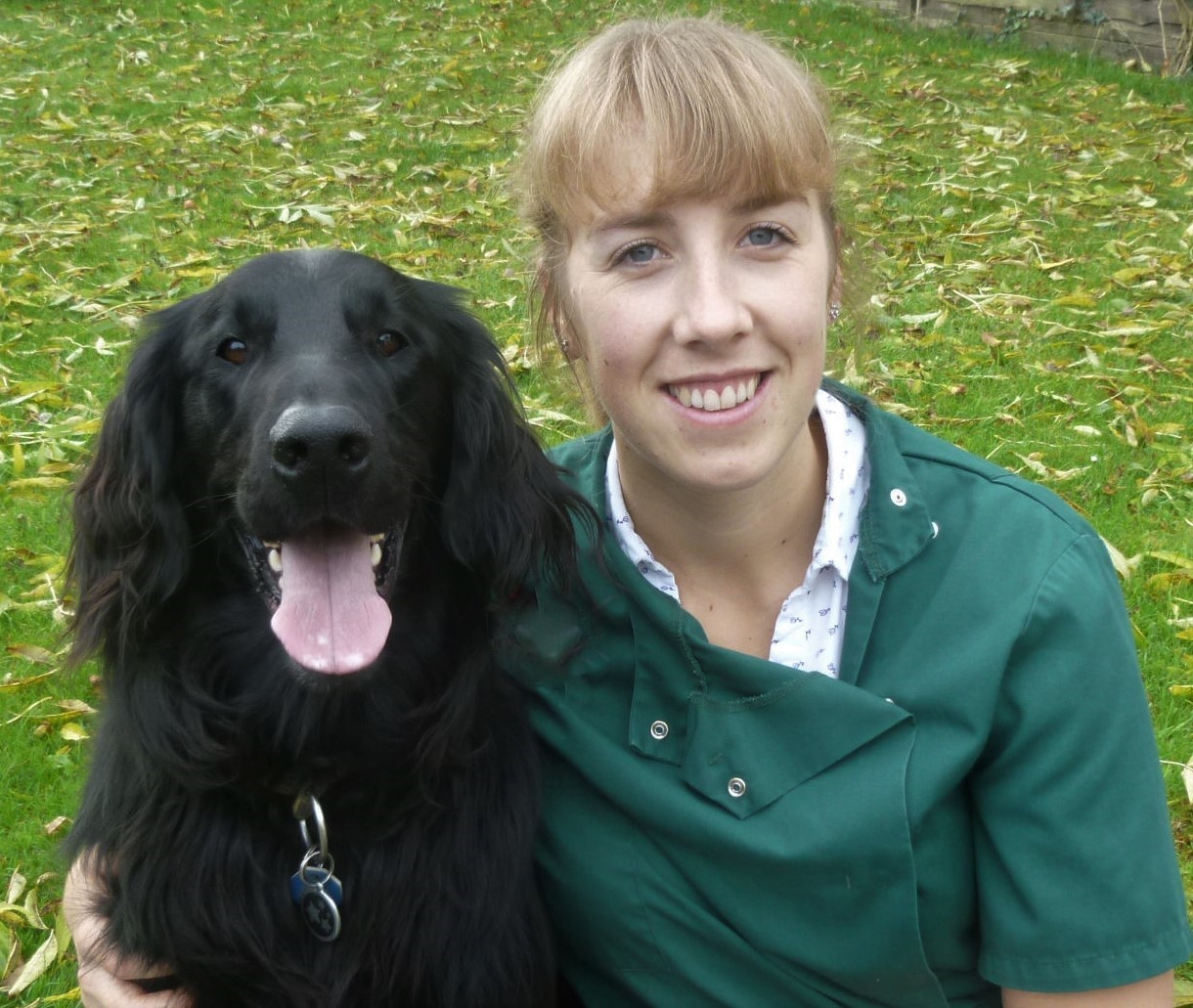Why do dogs chase their tails?
Why do dogs chase their tails? It could be a sign of a larger problem

You've probably seen a dog running round in circles and wondered: why do dogs chase their tails?
This infamous dog move could simply be an example of your pup being playful. Maybe your pup is in a silly, goofy mood, or is excited because you just got home? However, it could be a sign of an underlying problem, so it's best to keep an eye on your dog and notice if their behavior changes. If your pup suddenly starts chasing its own tail incessantly, you should reach out to your vet.
Here are all the main reasons why dogs chase their tails, from the playful to the problematic.
Why do dogs chase their tails?
1. Play
Playfully chasing their tail is a common puppy behavior. They are exploring their environment and learning about their bodies and how they move, so running after that fluffy tail attached to them makes a lot of sense.
Beyond puppyhood, however, a dog chasing its tail often could be a sign of an underlying condition, so let's get into that.
2. Boredom
Dogs usually need a lot of physical activity to be mentally and physically fit, and certain breeds need more exercise than others. If you aren't giving your dog the exercise they need every day, they may start chasing their tail out of boredom. A tail can certainly look like a toy, right?
If you notice that your dog starts chasing their tail after being left alone for long hours at a time, you may want to take them out on a walk and see if the behavior corrects itself. You could get your pup some of the best dog toys or play games such as tug-of-war with a rope toy to expel that energy. Again, if you find this doesn't work, you should reach out and talk to your vet.
Get the best advice, tips and top tech for your beloved Pets
3. Compulsive behavior
Some dogs can suffer from obsessive-compulsive disorder (OCD). According to an article by the American Veterinary Medical Association, animal OCD is a serious welfare issue that can negatively affect their health and wellbeing. A compulsive behavior is a repetitive action or thought that both people and animals who live with OCD take part in because they believe it will reduce stress. Often, however, it's detrimental to their health.
A dog obsessively chasing its tail is engaging in a compulsive behavior that may be related to anxiety or OCD. Take your dog to the vet to rule out any health issues and reach out to a canine behaviorist or trainer. They will be able to help you figure out what is causing your dog to exhibit the behavior and what you can do to alleviate it. They may recommend a course of fluoxetine hydrochloride, which is essentially Prozac for dogs.
4. Irritation
Your dog may be chasing their tail because it itches. This could be because of an allergic reaction, fleas, or some other skin irritation. If you notice your dog trying to bite at its tail, examine the area to see if the skin is red or irritated. Again, if you suspect something is wrong with their health, whether it's an allergic reaction or a flea infestation, reach out to your vet.
If you see fleas, you can use a flea shampoo to get rid of them fast. Then make sure you apply a safe flea treatment to your dog (and any other pets in your household) to ensure they don't stick around or come back.
6. Injury or other illness
If your dog is chasing its tail, there could also be something wrong with its digestive system. Sometimes, intestinal parasites or impacted anal glands can result in your dog feeling uncomfortable back there, and they may frequently reach for their tail to try and alleviate any pain.
They may also have an injury to the tail itself and be attempting to give themselves a little relief by chasing the tail, just as you'd rub your elbow after banging it against something. Observe your pup and reach out to your vet to set up an appointment.

The best bet when your dog randomly starts chasing its tail is to call your vet for advice. If it's a one-off thing, you probably won't have to worry, but you should always err on the side of caution. A vet can help identify any underlying behavioral or medical issues and can set up a treatment plan to address them. Repeated tail chasing and biting can be detrimental to your dog's health, but getting to the root of the problem will help put them on the fast track to healing.
If you notice your dog chasing its own tail, it's alright to have a giggle with them but make sure you don't ignore any potential problems. Also, keep your dog entertained so that their energy levels don't result in compulsive behaviors. Tail chasing can look funny, but we always want to make sure our pups are happy and healthy.
You might also be curious why your dog is spinning in circles.
Rebecca is a veterinary surgeon who graduated from the Royal Veterinary College in London in 2009. She enjoys medicine in particular and she is proud to have achieved a BSAVA postgraduate certificate in small animal medicine (with commendation) from Nottingham Trent University in 2021.
She has a wealth of experience in first opinion small animal practice, having done a mixture of day-to-day routine work, on-call emergency duties and managerial roles since 2009.
She writes on various feline and canine topics for the Veterinary Content Company and a freelance basis, including behavior, nutrition, and health. Outside of work and writing she enjoys walking her own dog, spending time with her young family and baking!

